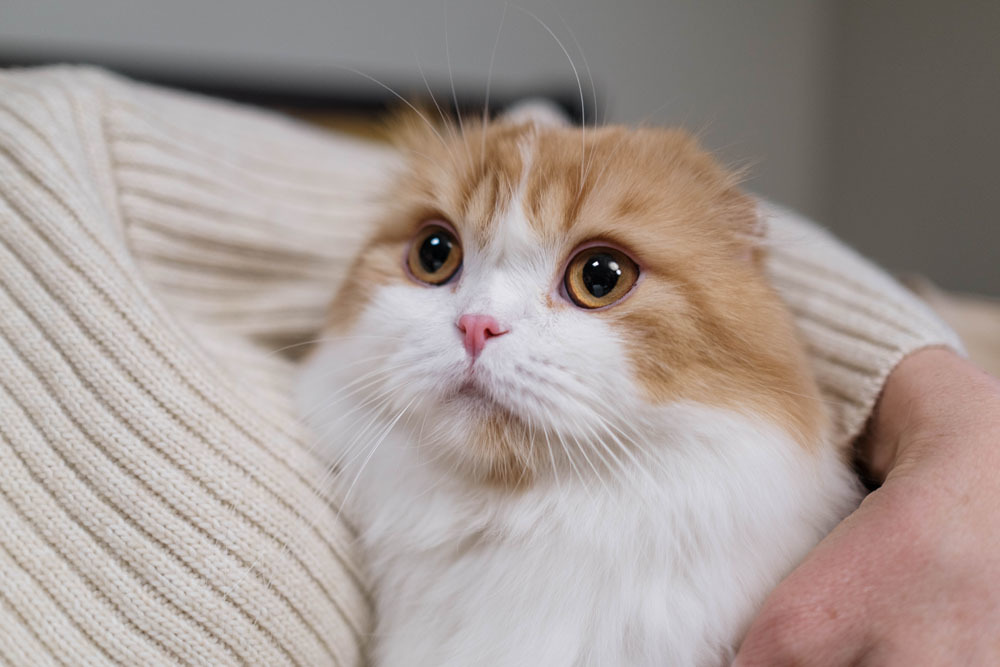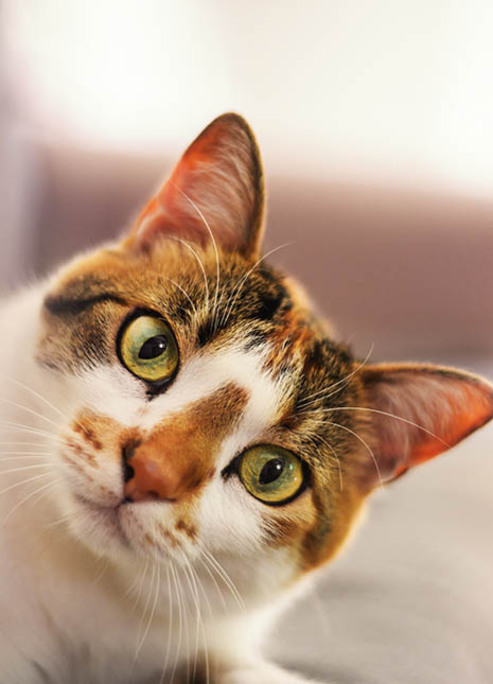
6 Things You Should Know Before You Get Your First Cat
It will be to your cat’s benefit.
The relationship between cats and humans has been an interesting one ever since the furry creatures introduced themselves to us approximately 9000 years ago. By showing that they could be trusted to keep rats and other pests away from grain stores, cats domesticated themselves - and in the modern day, they’re still a highly intriguing species that defies easy analysis.
If you’re planning on getting a cat, you absolutely should do so. They’re fascinating to watch, endlessly cute and often jaw-droppingly clever. But you should also do yourself a favor and learn a few things about them that might surprise you. If you’ve never had a pet cat, or had one as a kid but never as an adult, then the following information will be invaluable to you - and it will be to your cat’s benefit that you learn it in advance.
Cats are not just like smaller dogs
Many households are neither cat nor dog homes, and in fact have both pets around the place. You may have witnessed cats and dogs becoming friends and even seen one eat from the other’s bowl - but you should resist the common temptation to see the two creatures as largely interchangeable. This is a mistake that even vets have a tendency to make on occasion, comparing symptoms in a cat to what they know about dogs.
While your dog might be a very good boy who eats up the leftovers when dinner is finished, cats are much fussier eaters, and will flat-out walk away from food they don’t want. They also need to eat meat - cats are what naturalists refer to as “obligate carnivores”. Taurine, a vital element for a cat in order to grow and thrive, can only be sourced from meat. Buying cat food with a substantial meat content is a good step to a satisfied, happy, healthy cat.

Don’t expect an immediate love bond with your new cat
There is a cliche about cats which suggests they are aloof where dogs are amiable. Some people believe this very firmly, and these are people who do not understand cats. If you expect a cat to become your best friend instantly, and to bowl over to you the moment you enter the house, you’re going to be disappointed. However, it doesn’t mean your cat doesn’t care for you.
Cats are somewhat suspicious of humans (can you really blame them?), and they will take awhile to lower their guard. The best way of persuading them to see you as friend rather than foe is to feed them. Put food in their plate, and leave it there for them. Don’t crowd them while they eat, because in nature, the time they spend eating is one of the times when a cat is most vulnerable. In time, you can try feeding them from hand. The bottom line is that when your cat trusts you, they will let you know. At that point, they can become hugely affectionate.
Cats are absolutely trainable
Another widely-held belief about our feline friends is that they can’t be trained. “Cat people” explain this as an example of the fierce independence that cats maintain. “Dog people” say that it’s because cats aren’t intelligent enough. In truth, the reason humans don’t train cats is because we’re credulous enough to hear someone say “You can’t train a cat” and assume it is true. It’s not.
Particularly from a young age, a cat can be trained to sit on command and even to offer its paw just like a dog can be. The celebrity cats you see in movies have been trained to follow a basic behavior or two. Even right in the early days you can expect your new cat to understand the concept and function of a litter box. However, beware. While you are training your cat to observe and understand your commands, they will absolutely be trying the same with you. If you find yourself reaching for food or treats when they sit in a certain place, or heading straight for the door to let them out when you hear a specific “miaow” sound, then they’ve got you well trained.

Pet cats ideally shouldn’t be let out unattended
A popular assumption about cats is that, unlike dogs, they can be released from the house to go about their business in the wild, and opinions do differ on this assumption. On balance, it would probably be fair to say that you shouldn’t let a cat out unless you have them on a leash. The reason is that your cat has a hunting instinct, and will pursue birds, squirrels, insects and any other local wildlife. It’s in their nature, but it is bad for local ecosystems and it can be bad for your cat, who can all too easily get lost or run into danger while chasing their prey.
So what’s the solution when you know your cat would like to be chasing after local wildlife, but you don’t feel it can be allowed? Simply, you play with your cat indoors. Dangling-pole toys which ape the movement of birds are one option; keep the “bird” out of reach for much of the time before letting it “swoop” occasionally the way a bird would for a juicy worm, giving your cat a chance to pounce. Also a popular option: cat trees, which can be bought in modular form and added to over time - these will appeal to your cat’s exploring instincts and can be festooned with dangling plush mice.
Catnip: if they like it, they really like it
A commonly-occurring herb in the mint family, catnip holds a special attraction for 66% of domestic cats, and the way to find out if yours is among that number is to offer them some. Perhaps the best way of doing this is buying cat toys infused with the herb; if your cat is interested they will very quickly make this known. They’ll first sniff the toy, then perhaps bat it with a paw. Before long, they’ll be licking the toy and rolling on the floor in a state of intense relaxation. Catnip has a sedative effect, and has also been shown to repel mosquitoes - so it’s worth a try even if your cat turns out to be in the 34% who are, for hereditary reasons, unaffected.

Know your own cat; they all behave in their own way
While there are certain behaviors that are common to all cats - the above being some examples - the longer you live with your cat, the better you’ll get to know them. That could be crucial. Some cats will rarely be seen throughout the day; they do sleep for about 16 hours after all. But if you don’t see them when you would expect to, and they’re behaving out of character such as hiding away under beds, it can be a sign that they are ill or in pain - a veterinary check-up can do no harm.
Your cat may also exhibit their own happiness and affection for you in their own way. Some will “knead” with their paws (and sometimes their claws!), others will nuzzle and some will also brush against your legs. All three of these options are ways for the cat to deposit scent upon you, which is their way of saying “My human!”. Cats may also affectionately “nip” a human with their teeth - it looks like a bite and may feel a little like one, but trust us: if a cat wants to really bite you, they’ll just do it.
Cats are full of personality - so much so that you can easily go through life providing a home to cat after cat, and never have two who are quite the same. The tips above hold true for the species itself, but each cat will add their own special sauce that makes you fall head over heels in love with them in no time.











